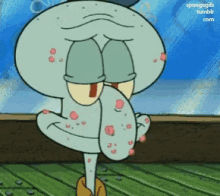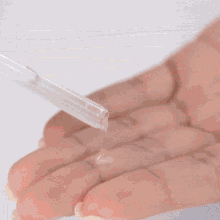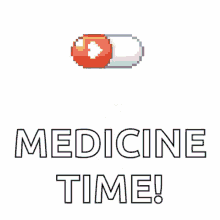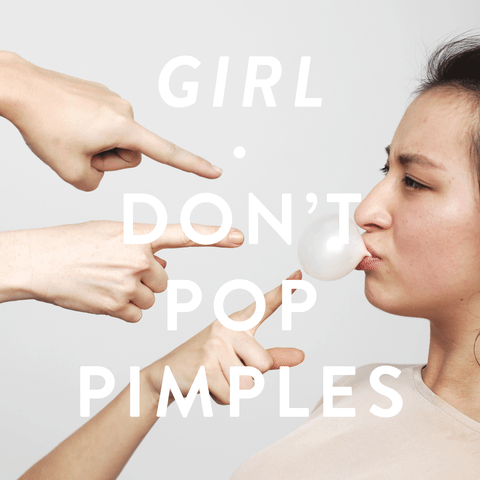All You Need to Know About Acne in Teens

Acne in teens is the most common condition that occurs in teenagers. Since it often appears on the face, it affects your appearance to some extent. This article will provide some information about acne during this period of puberty.
Causes Of Acne
This problem is usually experienced by adolescents when they begin to reach maturity. About 85 per cent of individuals in the age group of 12 to 25 years will suffer from acne. Reports are stating that acne among teenagers reaches 100 percent.

During individual maturation, the oil glands become very active due to the production and changes of hormones. Failure of pilosebaceous follicle function, driven by changes in androgen hormones, especially during adolescence, will lead to acne. The hormone involved is testosterone. It is converted to dihydrotestosterone in the skin. It acts directly on the oil glands to increase the size and metabolic rate. For sensitive individuals, excessive sebum production will occur. The actual function of sebum cannot be ascertained, but it is believed to act as a lubricant and a protective layer to hair and skin. The oil glands contain a mixture of common microorganisms, Propionibacterium acnes. These germs can convert sebum into fatty acids that can cause inflammation.
There are four main mechanisms of acne.
- The sebaceous glands become extensive (hypertrophy) with increased sebum production (due to stimulation of androgen hormones)
- Hyperkeratosis (skin becomes thick) of the follicular epithelium (rapid growth of cells and filling the space of pilosebaceous follicles and forming plugs).
- Germ growth, rapid Propionibacterium acnes (clogged pilosebaceous follicles will trap nutrients and sebum and promote germ growth.
- Inflammation due to the germ Propionibacterium acne side effects.

Teen acne & puberty
Acne can occur when hair follicles are blocked with dead skin cells and excess oil. It most commonly starts during puberty, but there are still cases of acne that will grow to a more adult stage of life.
Upon entering puberty, hormones change, causing the oil glands in the skin to enlarge, and produce more oil, in fact, too much.
This excess oil will mix with dead skin cells on the skin, clogging the pores resulting in the appearance of acne. Excess oil can produce bacteria on the skin called Propionibacterium acnes.
Teenage acne not only appears on the face, but it can be on your chest, back of the body, neck and shoulders.
There are many types of acne; whiteheads appear when pores are clogged; blackheads appear when pores become clogged and remain open; pustules there is pus in them; nodules can cause scarring and pain; as well as cysts which are a type of severe acne, filled with pus and can cause scarring.
Face creams, hair dyes, clothes that come into contact with the skin, sweating, humid weather and stress can be among the factors that cause acne and also factors that will worsen your acne condition.
Methods of treating teen acne
Acne treatment depends on your age, overall health, and acne condition. The goal of treatment is to improve the appearance of your skin and prevent acne scars. Treatment can include medications and daily skincare products.
Skincare products

Skincare is essential no matter what your skin condition is. Skincare includes cleansing, moisturizing, and sunscreen.
- Gently cleanse the skin with face wash and warm water. Do not use soap that is too strong for the skin. It can irritate. Do not use hot water steam as it will remove essential oils on the skin
- Make sure the skin is hydrated. You can use a moisturizer and drink plenty of water during the day. Use products labelled ‘non-comedogenic’ and oil-free
- Protect your skin from sunlight radiation by using SPF 30 or more sunscreen. Repeat the application of sunscreen every 2 hours. If you engage in swimming or sweat a lot, you may need to apply it more often
- Do not squeeze the pimples as it will cause scarring

Medications
You can try some medications to treat and prevent acne that contain benzoyl peroxide (benzoyl peroxide) and salicylic acid (salicylic acid).
If medications do not work, your doctor may give you stronger medications such as antibiotics tretinoin to reduce bacteria and stop new comedones (comedones) from spreading.
Acne is common in teenagers. Adolescent acne usually starts when they step into puberty, and it will go away after adolescence.
However, this condition can affect their confidence and can be made worse if they do not adequately take care of their skin.
Myths About Acne
There are several myths about acne's causes, such as the myth that says chocolate consumption can cause acne. However, some people find that their acne attacks worsen if they consume certain foods in excess. If you are one of them, try to notice what happens if you stop or reduce your intake of those foods.
Another myth is about how to treat acne. Sunlight does not reduce acne. While sunbathing can make acne not look so bad for a while, it doesn't help to keep getting rid of it - and some people find that the oil their skin produces after sunbathing makes their acne worse.
Fighting Acne Attacks

Sometimes, proper hygiene cannot prevent acne. Washing your face properly or using lotions and make-up without oil cannot guarantee it. Many teenage girls find that acne comes out a few days before menstruation. This is called premenstrual acne, which is caused by hormonal changes. An estimated seven out of 10 women experience it.
If your teen has this problem, calm them down and let them know that they are not alone. Please encourage them to talk to you or their friends about it. Sometimes, talking about it can help reduce stress.
Also, you may want to take her to see your paediatrician or family doctor as they can treat acne using medications. Depending on one's acne, it may require the use of a prescription cream to prevent the formation of acne, the intake of antibiotics to kill the bacteria that cause acne or minor surgery. Sometimes a referral to a pediatric dermatologist is necessary.
It would be best to convince your teen that acne is not impossible to overcome. It is a common problem, and although the severity and type vary, there are now many better treatment options for acne. Instead of letting your teen suffer in silence, encourage them to seek the support and treatment available so that they can alleviate the misery and forget about it.
References:
mypositiveparenting.org





Leave a comment